June marks the kickoff of the ILC Relay Interview Series at THE KITAKAMI TIMES! What is the ILC Relay? We’d like to show more about what how all of Iwate is banding together to support to International Linear Collider Project, so we’re interviewing everyday people who are learning about, and working for, the realization of the project. Our first relay runner is Mr. Ryuji Shimabukuro, a civil servant in Kuji City on the northern coast of Iwate. His main activities include educating the public about a major highway construction project stretching along the coast of Iwate, which is part of reconstruction work from the 2011 tsunami. He also is in charge of a conference about the highway project that aims to show how important this road will be to the region.
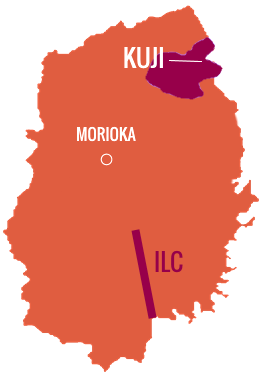 We met up with Mr. Shimabukuro at an ILC seminar held in the city, and he let us know his thoughts on the project as well as what Iwate needs to do to make itself a more international place.
We met up with Mr. Shimabukuro at an ILC seminar held in the city, and he let us know his thoughts on the project as well as what Iwate needs to do to make itself a more international place.
Profile
Ryuji Shimabukuro
Junior Staff at the Policy Promotion Division,
Department of General Policy,
Kuji City Government.
Originally from Kuji City
Did you know much about the ILC before attending this seminar?
Not so much. I actually thought the “I” in ILC stood for “Iwate” before I starting doing work with the ILC. But with this seminar I was able to learn a lot. The science behind the accelerator is a little bit much for me, but I can see just what an impact it will have on Iwate if we are able to host this international laboratory. I also learned about how we in the region should welcome new foreign residents, as well as what problems they may face living in Japan (due to language and cultural barriers).
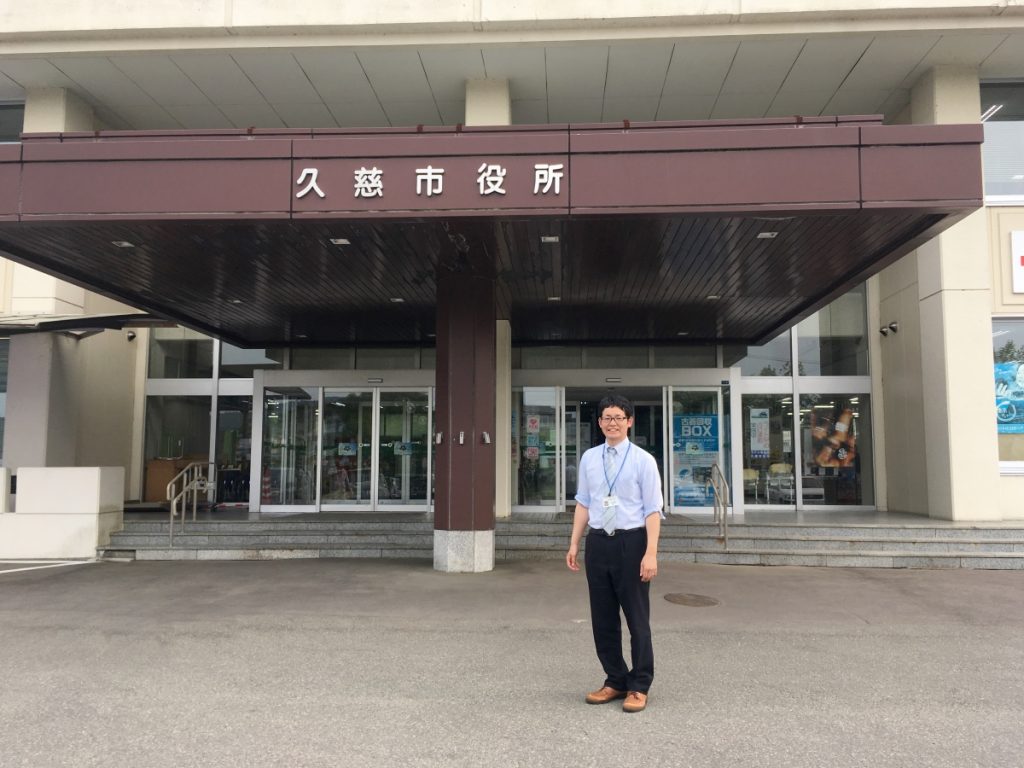
Outside City Hall
What do we need to do to make Kuji, and Iwate as a whole, a more international place?
This is a bit of a tangent, but the past two years I actually worked at the Ministry of the Environment in Tokyo. I can’t speak English, but I was able to attend international meetings (with an interpreter). I hadn’t ever been abroad before, but with this assignment I was sent on my first overseas business trip. But not only did I have trouble at the meetings – even at the hotel and other places I encountered some issues. The staff at the front desk was fluent in English, and spoke too quickly for me to understand. I only understood “refrigerator,” so I was able to guess that he was asking if I took anything out of it to eat or drink. I wasn’t able to converse in any real way, and basically could only respond, “no, no.”
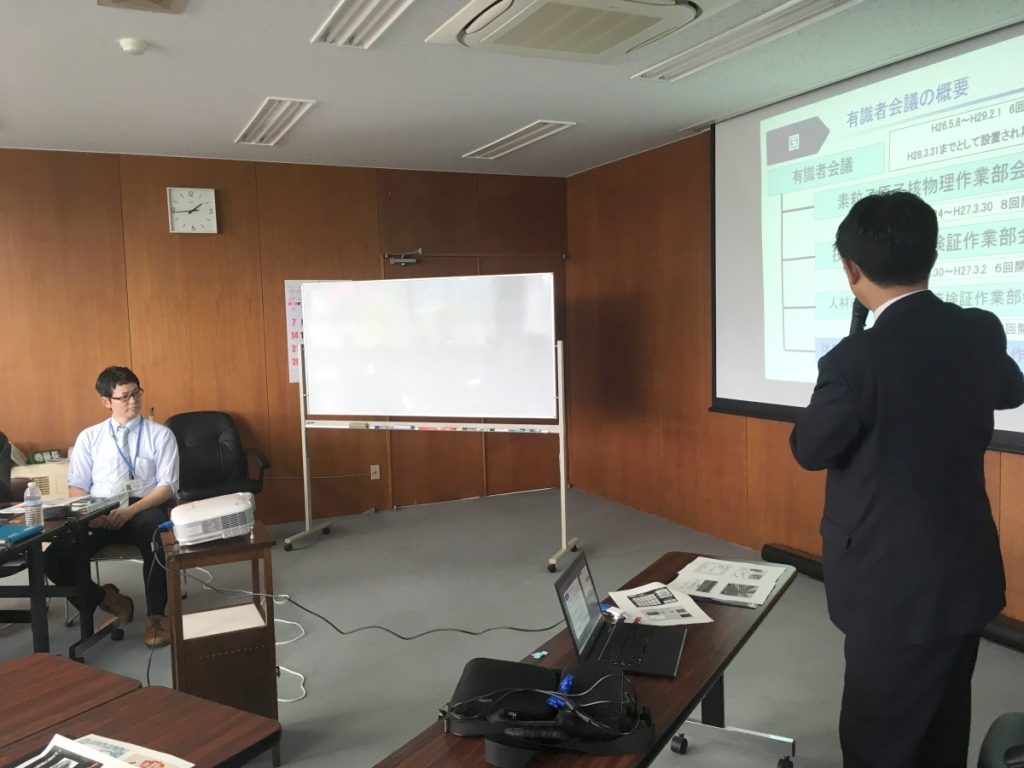
Mr. Shimabukuro listening intently to the ILC Caravan lecture
Aside from that, I’ve also visited other local governments where they are further along in promoting environmental administration or tourism or whatnot. Looking at those examples, and then looking objectively at Kuji, I think we’re actually doing pretty well. Other places may be better at promoting their local products (abroad), but I still feel that nothing can beat the food in Kuji. I think we in Kuji take our city for granted, and don’t see a lot of the charm that others do. Since I’ve returned to the city, I’d like to be able to communicate that with others as much as I can. I think what we need to do to make Kuji more international is just to share with each other what is good about Kuji, and learn to promote it better.
I can’t really answer how to make this place a more multicultural society, but I think if we have more opportunities to meet foreign people, we’ll naturally become more multicultural.
I’d actually like to ask you how you feel about living in Japan (as a foreign resident).
I think that, rather than pure English ability (which can be supplemented nowadays with translation apps), we need to be able to explain about how to do basic procedures needed for daily life. Not only do you have to explain what to do, you also need to know that these procedures can be completely different in other countries. An example being getting a driver’s license in Japan. For Iwate, foreign residents of certain countries need to take a technical driving test, which is only administered in the capital of Morioka. You need to prove how long you’ve had your license from your home country, as well as how you learned how to drive. And you can only take the test when you have less than month left on your international driver’s permit. So someone helping foreign residents needs to know all this information and be able to explain it in English, Chinese, etc.
But in general, I also agree with you about Iwate. It’s a beautiful place with great food, tons of things to see. I think researchers will be thrilled to live here. Do you have a message for the ILC researchers abroad?
Kuji is a bit far from the Tokyo area, but we’d love for you to come visit us even if for just once.
We have a lot of seafood that you can’t find elsewhere. Have you ever heard of “hoya?” (Note: Known as a sea squirt or sea pineapple. With a briny flavor and a texture similar to that of an oyster, it goes well with Japanese sake. Want to learn more about this and other delicacies of the sea? Read Anna Thomas’s article on Kesennuma, a coastal city part of the ILC candidate site)
Kuji is also surrounded by mountains, so we have a lot of mountain vegetables. Beef is also big here. So we have a lot of tasty things for you to enjoy when you visit Kuji.
Japanese
ILCリレー ① - 久慈市 島袋龍二さん6月から、THE KITAKAMI TIMESがILCリレーをスタートします!ILCリレーとは?ILC実現のためにオール岩手で取り組んでいる姿を発信するために、ILCに興味がある、ILCに取り組んでいる岩手県民の方々にインタビューし、海外までお届けします。一番目は、岩手県久慈市役所の職員、島袋龍二さん。島袋さんの主な業務では、国家プロジェクトである復興道路の一つ、三陸沿岸道路「リアス・ハイウェイ」の果たす役割について理解を深め、整備の必要性を広くアピールすることを目的とした大会の開催を担当しています。
久慈市で開かれたILC講演で島袋さんに出会い、ILCプロジェクトについての感想や、岩手の多文化共生を推進するために必要なものなどについて語ってくれました。
プロフィール
島袋龍二さん
久慈市 総合政策部政策推進課 主事
出身地 久慈市
Q)前からILCに興味がありましたか?
A)あまりありませんでした。恥ずかしい話ですが、担当する前までILCの「I」は岩手の「I」だと思っていました。でも、今回の講演を聞いてILCの概要について知ることができました。リニアコライダーに関してはやはり、専門的すぎて分からないことが多いのですが、国際機関の誘致によりどれくらい岩手に対して影響があるかを想像することができました。また、海外の研究者の方々がいらっしゃることに対し、地域の人達はどのような感じで海外の方々と付き合っていくか、日本に来た海外の方々が日常生活においてどのようなことを問題と感じるのか、そういう話が聞けて良かったです。
Q)久慈市や岩手県の多文化共生を推進するために何が必要だと思いますか。
A)少し話から脱線してしまいますが、昨年度までの2年間は東京都(環境省)に出向していました。英語は話せないのですが、国際会議に出て、通訳付きで話を聞くことも経験しました。これまで海外に行ったことがなかったですが、海外出張に行かせてもらう機会もありました。しかし会議のみならず、ホテルのチェックイン等、仕事以外の場面でも英語が話せないと困りますね。フロントの方も英語が流暢な方でしたので、速すぎて聞き取れませんでした。唯一「冷蔵庫」という単語だけが、チェックアウトのときに聞きとれて、「あ、冷蔵庫の中の物を何か食べたり飲んだりしたかを聞かれているな」と連想できました。結局、ちゃんとした会話ではなく「no, no」しか答えられませんでしたが。
環境省ではそういう経験もできたし、環境行政や観光分野においてより進んでいる自治体にも行くことができました。しかしながら、他の先進的な自治体を見つつ、客観的に久慈市を見ると、意外と負けてないじゃないかということが発見できました。他の自治体は地元特産品の宣伝がうまいですが、実際に食べてみると久慈も負けていないと感じることが多かったです。久慈の人は、それが当たり前になっていて、魅力に気付いていない部分が多いと感じました。そういうところは、今後、私から他の人達にも多かれ少なかれ伝えていけたらいいなと思いますし、久慈の魅力をみんなで共有して、久慈はこういうところだ、ということを宣伝していけたらと考えています。
また、多文化共生について自発的にこうすべきということについては今のところ回答できませんが、外国の方と接する機会が増えれば、自然にそういった多文化共生社会が作られていくのかなと思います。
むしろ多文化共生というと、インタビュアーに逆に聞きたいですが、日本に来てどのようなことを感じましたか。
(インタビュアーより説明)
個人的な考えですが、英語力よりは生活に係る様々な行政の手続きなどを分かりやすく説明する能力が必要だと考えています。英語力なら、通訳のアプリで何とかなると思いますが、手続きや日本の制度を説明する時に、すべて最初から説明して、そして他の国と違うところも説明しなければなりません。例えば、日本で運転免許証を取得するときに、とある国の出身者は、実技運転の試験を受ける必要がありますが、岩手で受けられるところは盛岡しかありません。そして、自国の免許をどこでどうやっていつからとっているか、書類で証拠を出さなければなりません。その上、試験を受けるタイミングですが、国際免許が切れる1か月前からで、その前は受けることができません。そういう、すべてのことをしっかりと理解して、そして英語や中国語で説明できる能力を育てないといけません。
それはさておき、一般的に、岩手は負けていないというところは賛成です。とてもきれいなところだし、美味しい食べ物がいっぱいあります。見るところがたくさん。研究者の皆さんは満喫して生活できると思います。
Q)ILCの研究者へのメッセージ?
A)東京都から移動するには遠いですが、観光で一度ぜひ来てください。
久慈は海の資源が豊富であり、独特な食べ物もあります。ほやを食べたことがありますか?(ほやとは、英語でsea squirtやsea pineappleとして訳されることがあります。海の味もあり、牡蠣に近い食感があります。日本酒と合います。)
久慈は山にも囲まれているので、山菜や短角牛も美味しい地域。美味しいものがたくさんありますので、久慈に来てご賞味いただければと思います。ぜひ一度、久慈にお越しください。

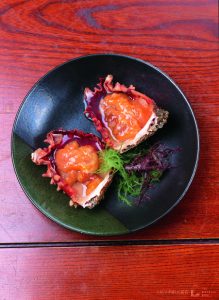
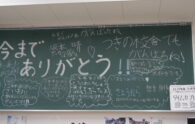
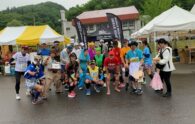
-195x124.jpg)